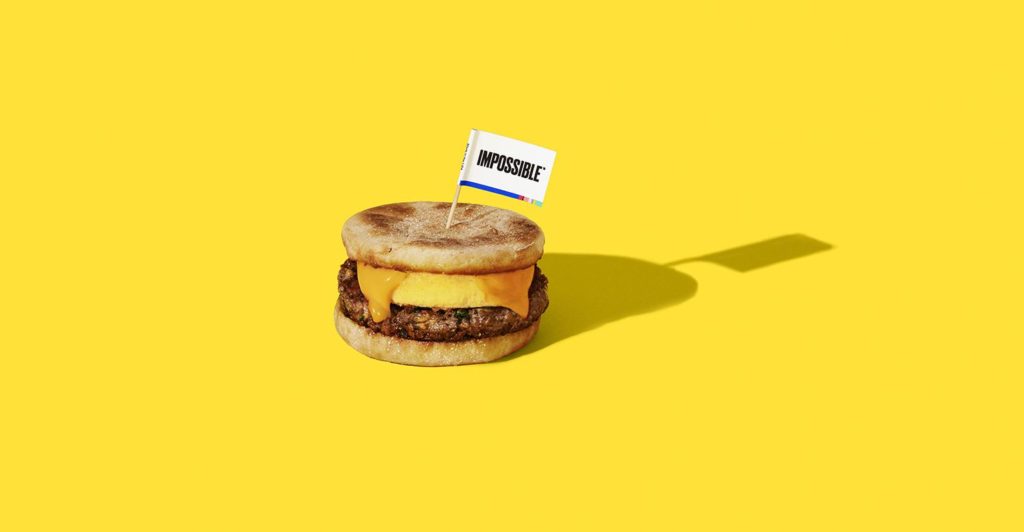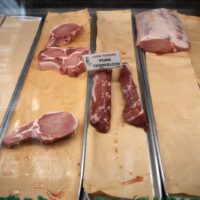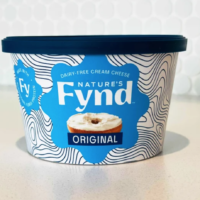
Image Source: Impossible Foods
Every week we track the business, tech and investment trends in CPG, retail, restaurants, agriculture, cooking and health, so you don’t have to. Here are some of this week’s top headlines.
Restaurants and bars across the US have shuttered in an effort to contain the outbreak of COVID-19. In response to the crisis, a slew of programs, grants, and resources—from grassroots efforts to government relief—have begun to take shape.
Amidst the economic turmoil caused by the COVID-19 pandemic, Impossible Foods has raised $500 million to boost its manufacturing, expand its distribution in supermarkets, and speed up the commercialization of its new line of products. Ample Hills has filed for Chapter 11 bankruptcy, citing its Brooklyn manufacturing facility as the main cause of its financial distress.
Meanwhile, groceries are scrambling to respond to the overwhelming demand, experiencing delivery strains and record app downloads as more shoppers move online.
In an effort to do our part and support the community we love so dearly, we have compiled a list of resources and organizations that are providing support to those in need. We are also offering free job postings to anyone who is looking to employ people impacted by the COVID-19 pandemic.
- Call Your Reps: Call your representatives and senators at 202-224-3121 to demand that restaurants be a part of the federal stimulus plan.
- Resources: Please add any resources, organizations, initiatives, virtual gatherings, etc. here, so we can promote them.
- Jobs: Use code “coronavirusfoodjobs” to post remote or remote-friendly food jobs on our job board.
We need your support as well. Producing our newsletter takes a lot of time and resources, and we need to change our business model to keep it going. To date, we’ve funded our work through our events, sponsorships and consulting, which are all on hold due to the pandemic. If you find our newsletter to be a valuable resource, we hope you will consider making a one time or monthly contribution, so we can keep the newsletter going and free for those who can not afford a subscription fee. Not able to contribute right now? You can help by sharing our newsletter with friends and colleagues.
Check out our weekly round-up of last week’s top food startup, tech and innovation news below or peruse the full newsletter here.
1. Impossible Foods Raises About $500M in New Funding – Reuters
South Korea’s Mirae Asset Global Investments led the round, bringing total raised to $1.3b. The latest funds will help the company expand its manufacturing capacity.
2. Restaurants and Bars Shuttered Across the US in Light of Coronavirus Pandemic – Eater
The governors of Washington, Maryland, Massachusetts, Illinois, Michigan, New York, Connecticut, New Jersey, and Ohio have taken the most dramatic state-wide steps so far, ordering all bars and restaurants closed. Carryout and delivery will continue to be permitted.
3. Food Industry Coronavirus Support Resources
In an effort to do our part and support the community we love so dearly, we are compiling a list of resources and organizations that are providing support to those in need. Please add any resources, organizations, initiatives, virtual gatherings, etc. so we can promote them.
4. As Coronavirus Shutters Restaurants Across the Country, a Swell of Support for Workers Rises Up – Food & Wine
Here are local and nationwide resources that we hope can provide some relief for laid-off restaurant workers.
5. It’s a Huge Blow’: How Businesses Are Moving Forward After Coronavirus Canceled Expo West – Food Dive
The annual trade show is critical in helping launch products, and the loss of face time with retailers and buyers has left many companies searching for creative solutions to recover.
6. Ample Hills Files for Bankruptcy, Cites Manufacturing Issues – Nosh
The producer cited issues with its Brooklyn manufacturing facility as the main cause of its financial distress, noting that it had built out a factory to increase volume and lower costs, but instead it resulted in increasing losses.
7. Grocery Delivery Strains to Meet Voracious Demand – Wall Street Journal
Grocers aren’t meeting the now-intense demand for their delivery services, as consumers endure cancellations and long waits on orders they are placing to prepare for long stretches at home.
8. Indonesia: Ride-Hailing Giant Gojek Raises $1.2B for Clash with Grab – Bloomberg
Rumored investors include Singaporean bank DBS, Visa and Thailand’s Siam Commercial Bank. The new funds give the company more firepower to compete against Grab.
9. Grocery Apps See Record Download As Shoppers Move Online – Grocery Dive
Instacart, Walmart Grocery and Shipt have seen respectively 218%, 160% and 124% increases in average daily downloads compared to the previous month.
10. Grocers Scramble to Hire Thousands Amid Outbreak – Grocery Dive
Grocers are hiring immediately for thousands of temporary, part-time and full-time positions across the US in an attempt to restock bare shelves, sanitize stores and meet demand for online order fulfillment and delivery.
11. Grubhub $100M Relief Effort Isn’t What It Seems, Restaurant Owners Say – Forbes
The offer to “suspend fees” is actually a short-term fee deferral only that applies to commission fees and not delivery or processing fees. The contract also stipulates that restaurants stay on the Grubhub platform for at least one year.
12. Chefs Launch Petition to Save Restaurants During Coronavirus, with Help From Alice Waters, Reem Assil and More – Forbes
75,000+ restaurant industry members and concerned individuals signed a Change.org petition seeking a government-sponsored aid package to protect this essential industry from demise.
13. The Companies Putting Profits Ahead of Public Health – New York Times
As the coronavirus spreads, the public interest requires employers to abandon their longstanding resistance to paid sick leave.
14. Court Cites Coronavirus in Blocking Trump Administration’s Food Stamp Cuts – NBC News
A federal court blocked the Trump administration’s rule that would have forced 700,000 low-income Americans to lose access to SNAP, citing the coronavirus pandemic in her decision to suspend the rule.
15. House Safeguards SNAP, WIC and Other Nutrition Programs in Emergency Coronavirus Funding Bill – The Counter
The bipartisan bill would also mandate paid sick leave for some workers, but exempt companies with 500 or more employees—a huge segment of the food industry.
Our newsletter is the absolute easiest way to stay on top of the emerging sector, so sign up for it today and never miss the latest food tech and innovation news and trends, Already signed up? Share the love with your friends and colleagues!





